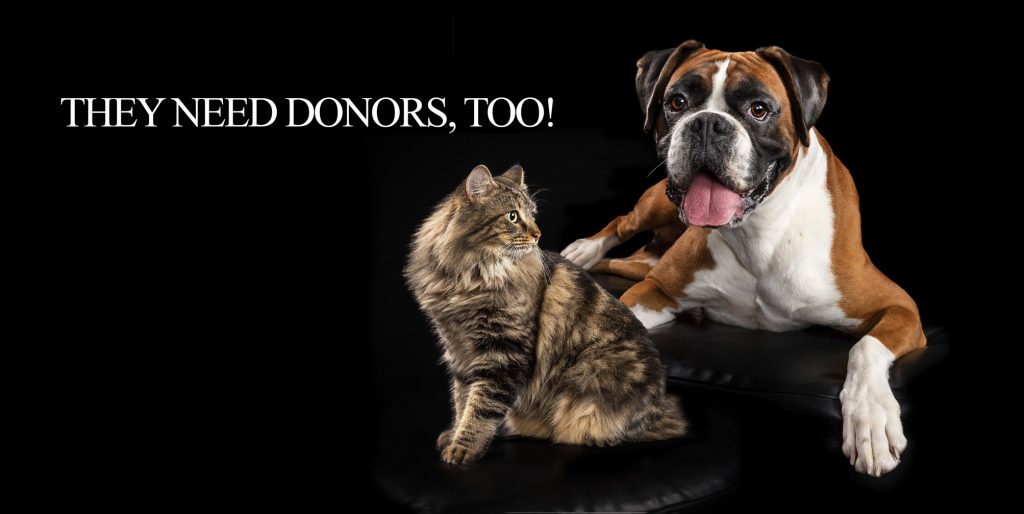Zoo Studio Blog
The place for zoo-riffic news!
Book an experience with Zoo Studio
Blood Donors with a difference
I’m a blood donor! Last Friday I went to my local Australian Red Cross Lifeblood and donated blood. I always feel a huge sense of gratitude when I donate blood. My Mum was a Medical Laboratory Scientist and when my Mum and Dad first came out to Australia from the UK, the first job my Mum had was working for the Australian Red Cross blood bank in Coventry St, South Melbourne. I can still remember as a young child going to work with my Mum and being fascinated by all the equipment and the jobs that everyone was doing.
My Mum sadly passed away suddenly and unexpectedly three years ago. Two years prior to that she was in hospital critically ill and almost lost her life. I can still vividly recall the doctors in the Emergency at the Royal Melbourne Hospital (RMH), telling the nurses to get plasma and blood, stat! Thankfully, my Mum recovered. That gave me an extra two years with my Mum. I may not have ever had those two years had it not been for the generosity of all the blood donors out there. It is because of my Mum I continue to give gratitude to others by being a blood donor. I hope I can give life to other families so they can enjoy time with their loved ones the same way I did with my Mum.
Which brings me to the topic of blood donors – with a difference! 😊 Did you know our canine and feline fur family can be blood donors too? Did you know that animal blood banks even existed? Well they sure do! Of course, being a ‘volunteer,’ is with our consent, but they too can help save fellow canine and feline lives.
Dogs and cats have blood groups similar to humans and can require blood transfusions for various reasons. Dogs and cats can suffer from accident, illness and emergency situations that will require them to have blood product intervention. Just like us, blood contains red blood cells, platelets and plasma. Each of these components can be used to treat various situations.
Some of the situations where dogs and cats may need blood or blood components and include an acute blood loss from trauma, something like a car accident or from a surgical procedure. Sadly, dogs, in particular, can be susceptible to being bitten by snakes and can be exposed to toxins like snail or rat bait and/or snake envenomations.
We then also have, the dogs and cats with cancer. They can also require blood transfusions whilst going through their cancer treatments. As well as autoimmune diseases, such as haemophilia. This is where the body, for some reason, attacks and destroys its own red blood cells causing anaemia.
Which fur babies can donate?
Blood donation is critical in saving lives, whether it comes to trauma, cancer, blood disease, or surgery, but did you know that your pet could also help save lives?

Key facts about canine and feline blood donorship:
• One in three dogs and one in five cats can donate blood
• Dogs and cats both have different blood types
• A 25kg dog can almost give the same amount of blood as a human per donation
Werribee U-Vet, run by Melbourne University, is Victoria’s only animal blood bank, and its donors have been vital for saving many pets’ lives.
Both dogs and cats are able to give blood, as long as they meet the physical and ethical requirements.
• Pets need to be aged between 1 and 7 years, (they usually ‘retire’ at 8 years of age), healthy, with vaccinations, heartworm prevention and worming, and have a calm temperament. 
• Dogs are required to be over 25kg and give 450 millilitres of blood a visit, which is almost the same as the standard human donation of 470mL.
• Has no significant current or previous illness
• Has never received a blood transfusion
• Be able to lie on their side for 5-10minutes.
• Should not be taking any medications other than flea/tick preventatives.
• With the state of Victoria, animals need to be local to Victoria to minimize the risk of contamination by interstate disease, and not have required a transfusion in the past. This may be applicable to each state where canine and feline blood donors are accepted.
 • Cats need to be over 4kg and 20 per cent of the feline’s blood is taken in a donation, which is capped at 50mL.
• Cats need to be over 4kg and 20 per cent of the feline’s blood is taken in a donation, which is capped at 50mL.
• Aged 1 – 8 years of age.
• Current on annual vaccination (minimum of F3). Indoor only (no unsupervised outdoor time).
• Receive routine flea/parasite prevention.
• Should not be taking any medications other than flea/tick preventatives.
• Tolerate venipuncture and restraint with light sedation.
• Not significantly overweight.
• Males need to be desexed and Females spayed with no previous pregnancy.
• No previous blood transfusions.
Whether it is a one-off donation, or a regular contribution, your canine or feline fur family can become a life saver. They can help save the lives of many other dogs and cats so they can live happy and healthy fulfilling lives with their pawrents too!

A very big thank you to U-Vet Animal Hospital in Werribee, Melbourne, for their help with information for our blog and to all the pawrents out their who ‘volunteer’ their fur babies to help others, we thank you all for your generosity and thoughtfulness.
To learn how your canine or feline fur family member can help save other lives, or if you’d love to learn more about the process involved, click on the links below.
U-Vet Animal Hospital
https://www.u-vet.com.au/services/blood-donation-programs
Sesh Vets https://sashvets.com/services/animal-blood-bank/
Australian Animal Blood Bank
https://aabb.com.au/
